Enhanced Economic Injury Disaster Loan Program to Help Small Business Facing COVID Delta Variant Challenges
By Admin October 12, 2021 Category: Business Law

The Small Business Administration (SBA) announced that it is accepting new applications from small businesses still being impacted by the pandemic for its enhanced the COVID Economic Injury Disaster Loan (EIDL) program. Some of the enhancements include increasing the borrowing limit from $500,000 to $2 million with loan funds being used for working capital and normal operating expenses such as payroll, paying debt and purchasing equipment; Offering 24 months of deferment to repay the loan; Expanding eligible use of funds to allow borrowers to prepay higher-interest commercial debt and make payments on federal business debt; and simplifying the application process... READ MORE
Estimated Tax Payments Can Help Business Owners & Self-Employed Avoid Unexpected Tax Bills
By Admin September 14, 2021 Category: Business Law
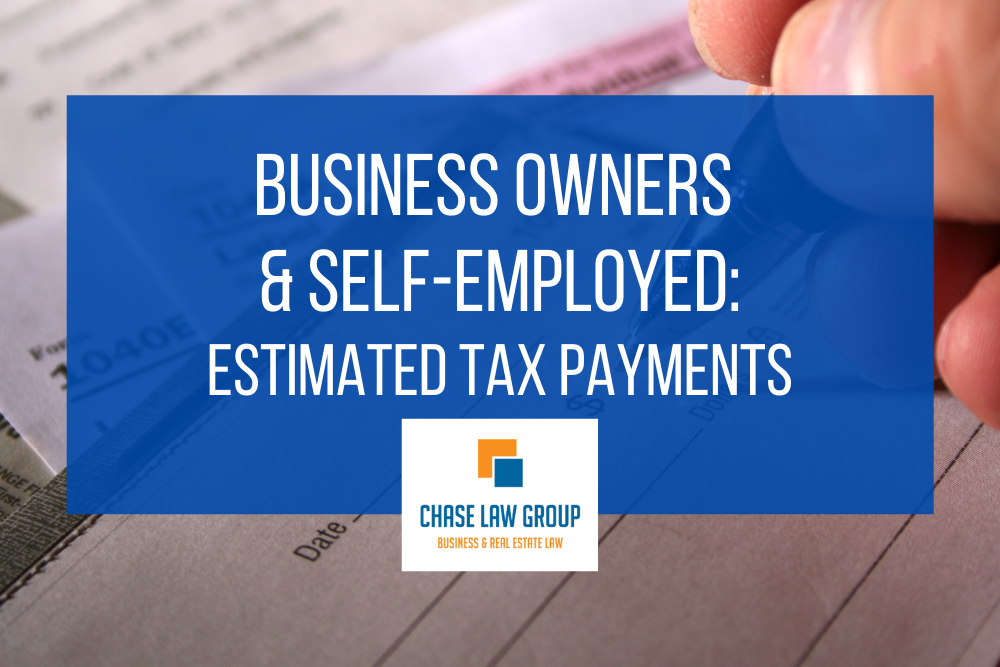
As a small business owner, self-employed person or wage earner who may earn income not subject to tax withholding (i.e., your employer withholds tax from your paycheck), you may want to look into making quarterly estimated tax payments to help avoid unexpected tax bills or a penalty. Typically, if one expects to owe $1,000 or more when filing their 2021 tax return, they need to make estimated tax payments. In addition to business owners and self-employed persons, sole proprietors, partners and S corporation shareholders are also expected to make tax payments. Corporations generally must make these payments if they expect... READ MORE
Gross Receipts Safe Harbor for Employers Claiming the Employee Retention Credit
By Admin September 14, 2021 Category: Business Law
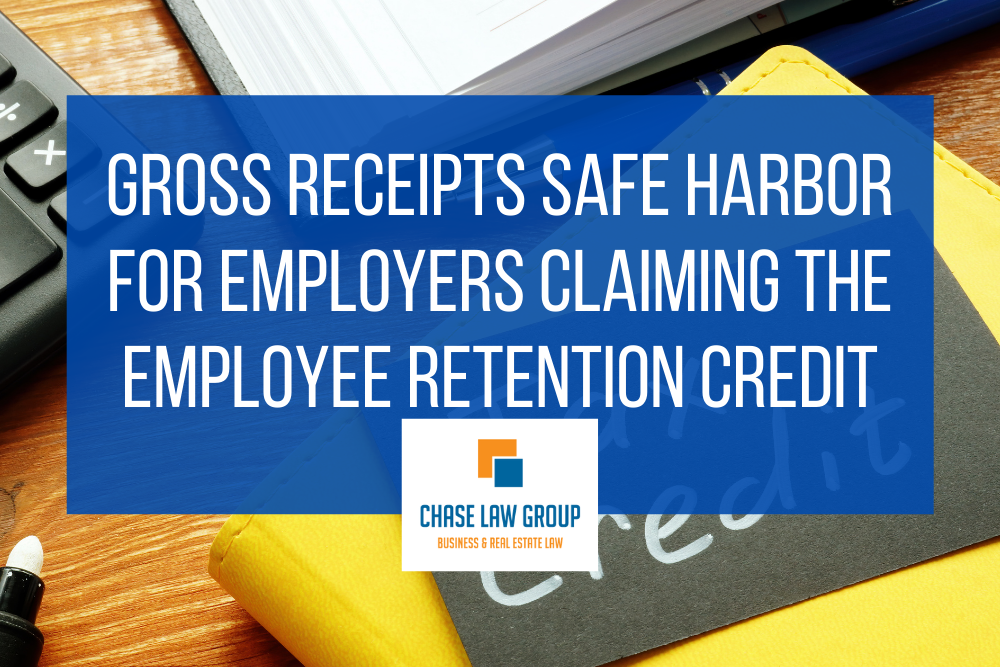
The Department of the Treasury (Treasury) and the Internal Revenue Service (IRS) issued a safe harbor allowing employers to exclude certain items from their gross receipts solely for determining eligibility for the Employee Retention Credit (ERC). The ERC is a refundable payroll tax credit available to eligible employers whose operations were fully or partially suspended due to a COVID-19 shutdown. Employers may be eligible for the ERC if its gross receipts for a calendar quarter decline by a certain percentage when compared to a prior calendar quarter. This safe harbor permits employers to exclude certain stimulus proceeds from gross receipts... READ MORE
Eligible Employers Can Claim Paid Leave Credit For Employees Providing COVID-19 Immunization Care & Recovery
By Admin September 14, 2021 Category: Business Law

Paid sick and family leave tax credits under the American Rescue Plan Act of 2021 (ARP) are available to eligible employers for providing leave to employees to accompany a family member, household member or certain other individuals to obtain or recover from the COVID-19 immunization. Eligible employers can tax credits for the cost of providing paid sick and family leave for reasons related to COVID-19 including qualified leave wages and certain other wage-related expenses (such as health plan expenses and certain collectively bargained benefits). The ARP tax credits are available to eligible employers that pay sick and family leave for... READ MORE
Living with Your Contract: Enforcement Using Dispute Resolution Provisions
By Admin August 11, 2021 Category: Business Law

As a business owner, it’s not enough to just have a contract, but truly “living” with your contract is the key to your best business protection. Living with your contract means knowing what your contract says, knowing what your contract means, and knowing how to enforce it when the time comes. Here at Chase Law Group, we work with business owners on a daily basis and we find that oftentimes new clients come to us using a contract that they may have downloaded from the internet or they’ve borrowed it from someone else in their industry. Now they’re using that... READ MORE
Enacting and Enforcing a Mandatory Vaccination Policy in the Workplace: Understand the Legal Requirements and Issues That Can Arise
By Admin August 11, 2021 Category: Business Law
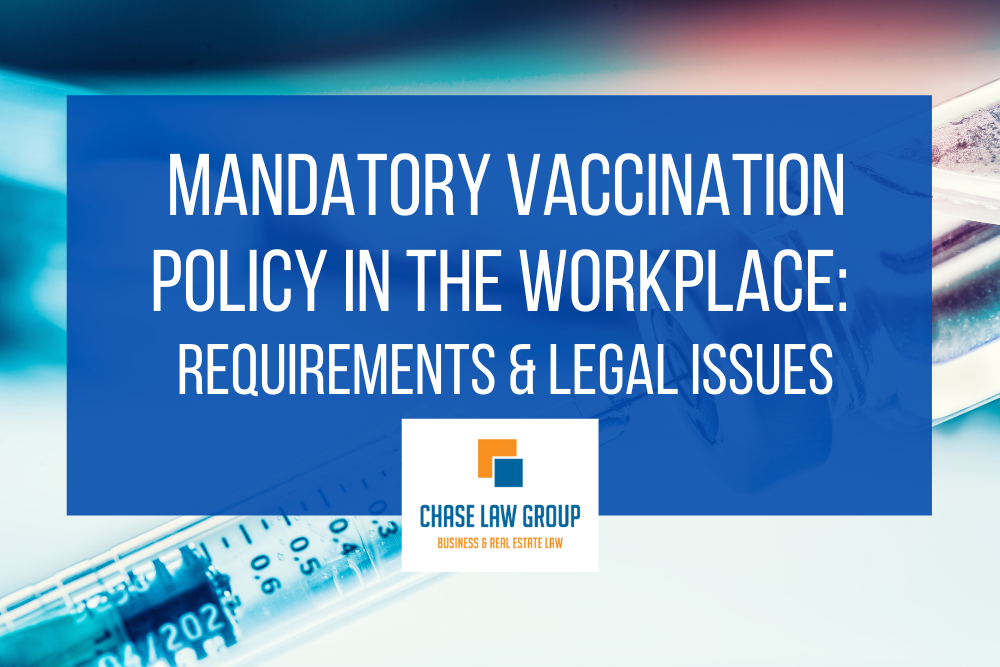
In the face of the recent upswing of Covid-19 cases related to the Delta variant, many employers have elected to require all of their workers be vaccinated. But what is an employer to do if an employee refuses to be vaccinated? As a preliminary matter, the California Department of Fair Employment and Housing (“DFEH”) has issued an opinion that California employers may mandate Covid-19 vaccinations for its employees. However, the employer must engage in an interactive dialogue with employees who have a disability-related or religious reason for refusing an FDA-approved vaccine. Note however, an employee who doesn't "trust that the... READ MORE
Cal/OSHA requirements for reporting COVID-19 in the workplace
By Admin July 29, 2021 Category: Business Law
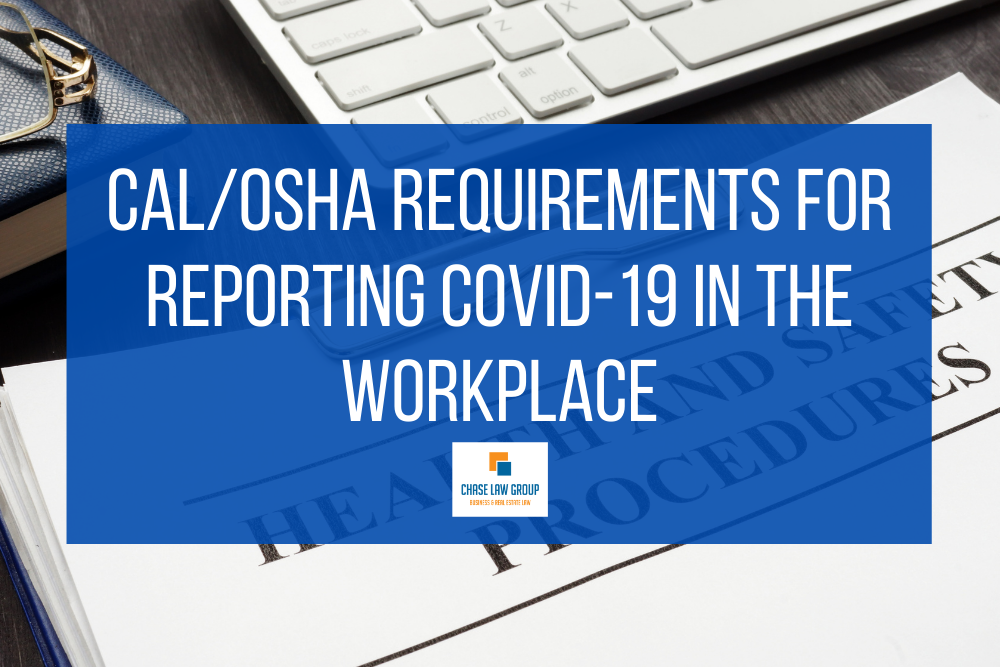
Cal/OSHA has enacted a standard detailing notification and reporting requirements for when there is a COVID-19 case in the workplace. Per the standard, a COVID-19 case is defined as someone who: Has a positive COVID-19 test;Has a positive COVID-19 diagnosis from a licensed healthcare provider;Is subject to a COVID-19-related order to isolate issued by a local or state health official; orHas died due to COVID-19, in the determination of a local health department or per inclusion in the COVID-19 statistics of the country. Under Cal/OSHA’s standard, when the employer knows or should have known there is a COVID-19 case in... READ MORE
The Risks of Failing to Comply with California’s Wage and Hour Laws: Lawsuits and Penalties Require Vigilant Compliance by Employers
By Admin July 29, 2021 Category: Business Law
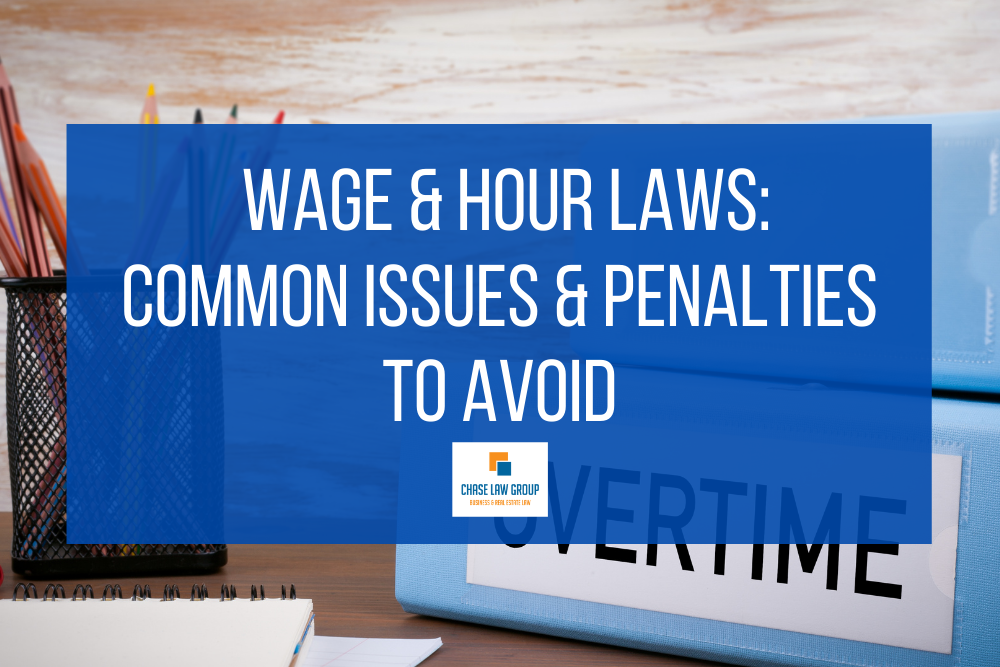
Employers face substantial risks due to misclassification of their workers and not abiding by the myriad of California wage and hour laws. These landmines for unaware employers, have enormous, business-breaking ramifications due to the substantial penalties that could quickly compound and potentially be a million-dollar liability for an organization. By understanding the applicable requirements and their penalties, employers will better understand their exposure and ensure they take necessary proactive steps to avoid them. What are the most common issues that arise when facing a wage-related claim? Overtime: Unpaid overtime for all work performed in excess of 8 hours in a... READ MORE

When you are moving your business into a new space whether an office, industrial or retail location, there are a number of decisions and protections you’ll want to consider before signing a lease agreement with a landlord. The lease agreement comes in many forms and every situation is unique, which is why it’s important for you as the tenant to review the document with a qualified business or real estate attorney. Keep in mind that lease terms are always negotiable. You can assume that the document presented to you by the landlord favors the landlord and of course in many... READ MORE
How to handle contested credit card charges by customers
By Admin June 16, 2021 Category: Business Law

As business owners, sometimes there are clients out there who may try to get out of paying you by contesting a charge for your products or services on their credit card, claiming it as “fraud” to their card issuer or bank. It’s frustrating to think that a customer would go to this extent to not pay you, but it does happen in business. Here’s what you should know and how best to handle a situation like this. Credit card companies don’t control your contract Regardless of what the credit card company does with the charge, whether they credit the customer’s... READ MORE

